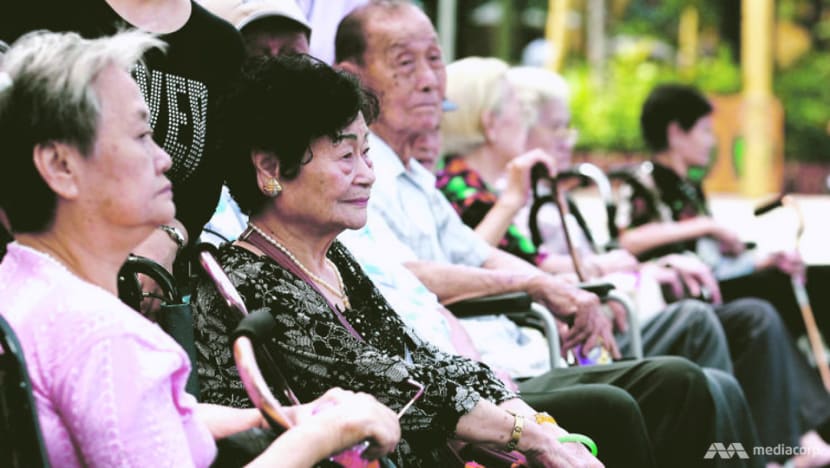4 things Singaporeans can do to live a happier, longer life

It's never too late to prep for old age. There are steps you can take in your 50s to be more resilient to ageing, says expert. (File photo: TODAY)
SINGAPORE: The world has yet to discover the fountain of youth. But if there is something that can help mid-lifers (those in their 50s) improve the quality of their later years, then improving psychological resilience is a close second to a miracle substance, said Professor Angelique Chan, executive director at the Centre for Ageing Research and Education, Duke-NUS Medical School.
“Nonagenarians (aged 94 to 98 years old) with better resilience have a 43-per-cent higher likelihood of becoming a centenarian compared to their non-resilient counterparts,” shared Prof Chan at the 8th Association of Pacific Rim Research Universities Population Ageing Conference on Oct 11. This year’s theme was Ageing and Resilience in the 21st Century.
Psychological resilience, described by Prof Chan as the ability to bounce back after some kind of adversity, is important as Singaporeans are now living longer. “Our average life expectancy has increased from 65 to 85 years old, so the period of 50 to 59 years of age is now regarded as middle life instead of the senior years,” she said.
To find out if Singaporeans were resilient, 1,500 participants between the ages of 50 and 59 were asked to rate their reactions to statements such as “I bounce back when something bad happens to me” and “I’m optimistic about outcomes”. Their responses were then measured against the Connor-Davidson Resilience Scale (CD-RISC).
1. PLAN SOCIAL ACTIVITIES
Prof Chan shared that participants with a greater social support - which she specified as social networks outside of the household - were more psychologically resilient.
“This is particularly for mid-lifers who work long hours, and don’t have a life outside of the office or family. They need to keep their social networks strong on weekends,” she said.
2. LEARN TO PLAN YOUR FINANCES BETTER
Mid-lifers may seem closer to retirement age than other age groups but they are nowhere near done. With Singaporeans settling down later in life, mid-lifers may still have children to bring up, and ageing parents to look after – both of which are big financial pressure points.
The perception of inadequate income was found to be another blow to psychological resilience, said Prof Chan. But with the right financial knowledge, mid-lifers can regain control of their money and lives.
“When people know how much money they need and can prepare, they can be less anxious about life. It’s a big issue for the mid-lifers because they are going to live long, and many of them do not want to rely on their children or even live with them,” she said.
3. KEEP ACTIVE PHYSICALLY AND MENTALLY
People who were less psychologically resilient typically had problems with instrumental activities of daily living (IADL). These refer to activities like managing the finances, grocery shopping, managing medication, using public transport, and doing light housework.
“But these are things we can do something about to increase mid-lifers’ resilience. We can help them with their medication. We can offer more financial education,” said Prof Chan.
4. LOOK ON THE BRIGHT SIDE
The study found that mid-lifers who were conscientious, and open to new ideas and experiences were more psychologically resilient than those who weren’t.
Can’t change someone’s personality? Prof Chan believed you can shift a person’s perception with role modelling. “If you use a role model to show a negative person that it is possible to either achieve a better physical level or quality of life, he can shift his thinking,” she said.
Or give him tools to interpret the world differently. For example, let the negative person pick three things that he is grateful for every day, and get him to repeat them to himself, she said.
“You can’t change negative people completely but you can help to adjust their thinking a little.”












